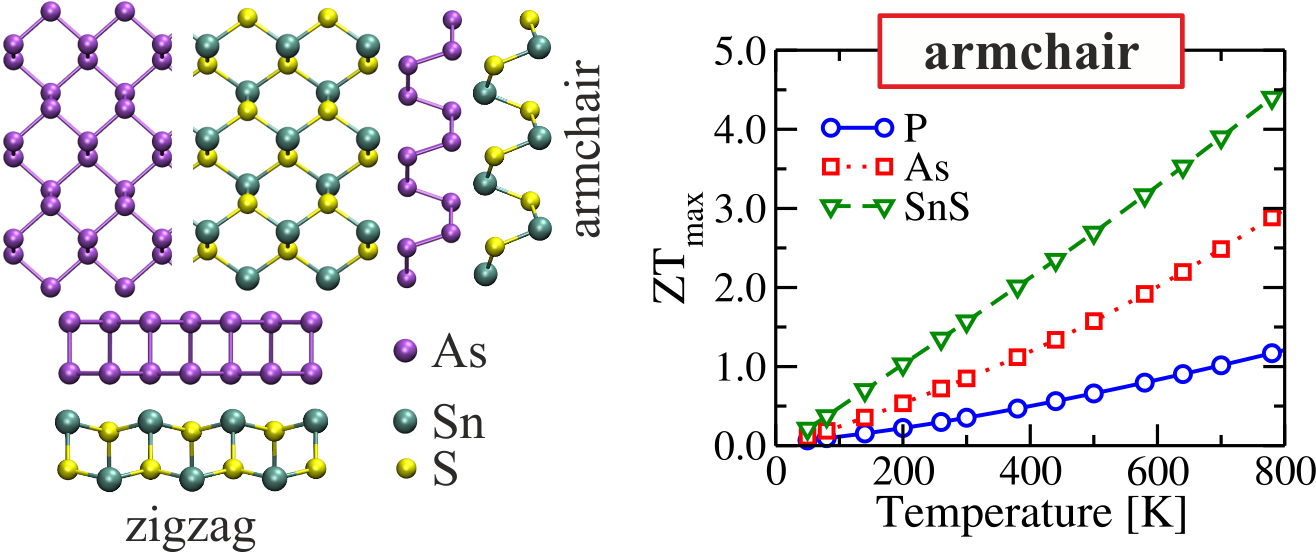Two-dimensional semiconductor materials with puckered structure offer a novel playground to implement nanoscale thermoelectric, electronic, and optoelectronic devices with improved functionality. Using a combination of approaches to compute the electronic and phonon band structures with Green’s function based transport techniques, we address the thermoelectric performance of phosphorene, arsenene, and SnS monolayers. In particular, we study the influence of anisotropy in the electronic and phononic transport properties and its impact on the thermoelectric figure of merit ZT. Our results show no strong electronic anisotropy, but a strong thermal one, the effect being most pronounced in the case of SnS monolayers. This material also displays the largest figure of merit at room temperature for both transport directions, zigzag (ZT ∼ 0.95) and armchair (ZT ∼ 1.6), thus hinting at the high potential of these new materials in thermoelectric applications.

Two-dimensional semiconductor materials with puckered structure offer a novel playground to implement nanoscale thermoelectric, electronic, and optoelectronic devices with improved functionality. Using a combination of approaches to compute the electronic and phonon band structures with Green’s function based transport techniques, we address the thermoelectric performance of phosphorene, arsenene, and SnS monolayers. In particular, we study the influence of anisotropy in the electronic and phononic transport properties and its impact on the thermoelectric figure of merit ZT. Our results show no strong electronic anisotropy, but a strong thermal one, the effect being most pronounced in the case of SnS monolayers. This material also displays the largest figure of merit at room temperature for both transport directions, zigzag (ZT ∼ 0.95) and armchair (ZT ∼ 1.6), thus hinting at the high potential of these new materials in thermoelectric applications.
